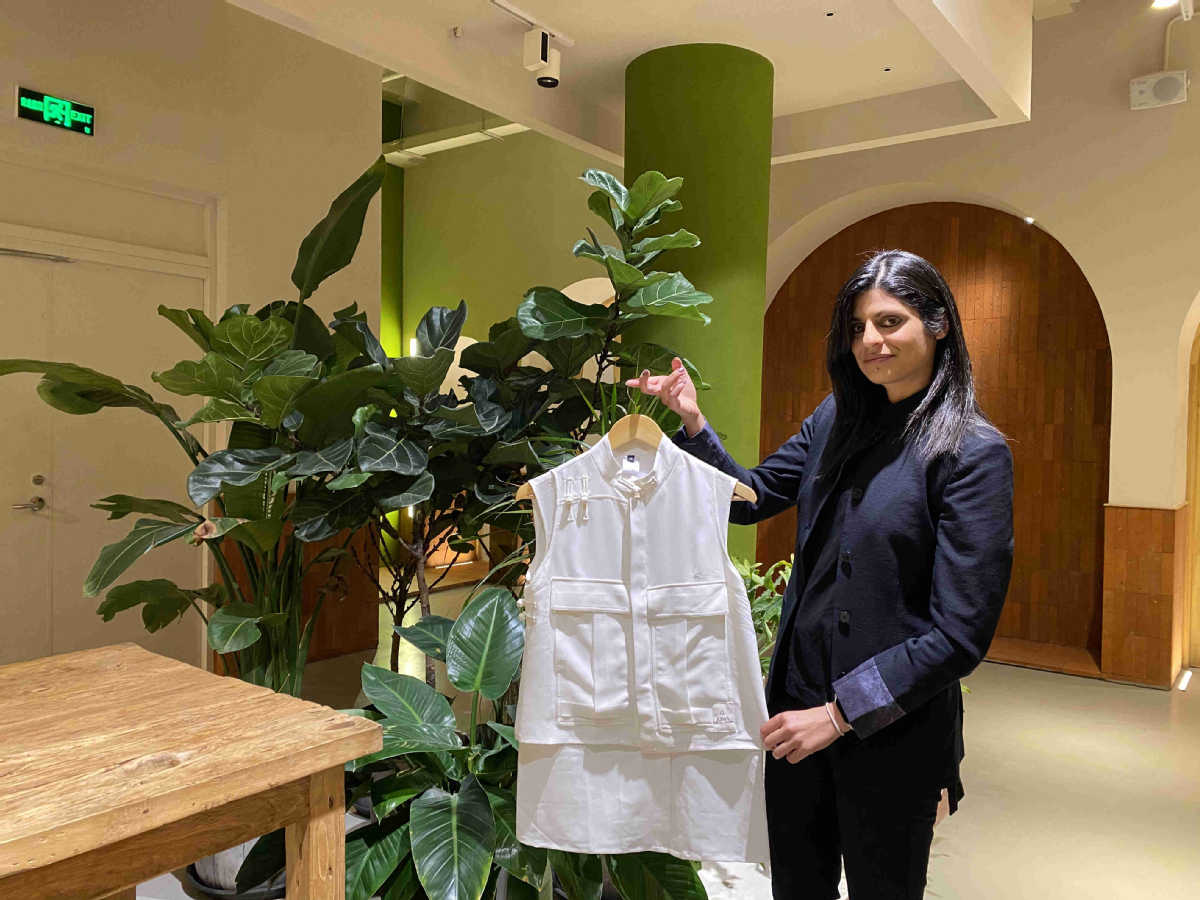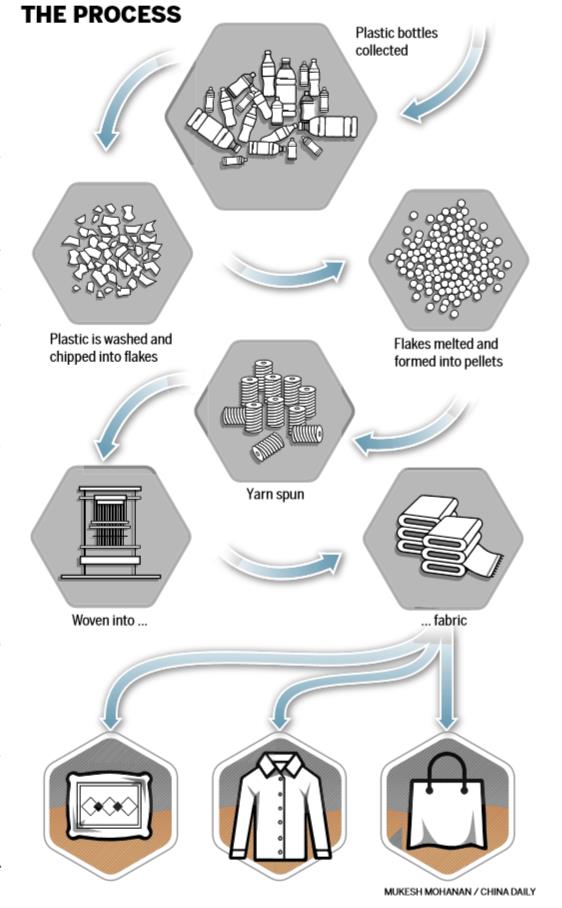Waste not, want not – water bottles put to creative use


Driven by a desire to save the environment, contemporary fashion brand JUMA by Alia Juma remodeled itself as a sustainable company last year before showcasing its new collection at a workshop in Shanghai in March.
Eighteen creations, including jumpsuits, workwear jackets, dress shirts and kimono-inspired dresses — all made from fabrics produced from discarded water bottles — were presented during the workshop.
Alia Juma, the company's cofounder and design director, said: "We realized that billions of water bottles were being thrown into landfills and oceans every year and that these bottles take hundreds of years to decompose. We thought that we should use them instead to create our clothes and help the environment."
Juma said the bottles are collected and washed before being shredded into small flakes, which are melted and formed into pellets that are melted again to form yarn. The yarn is then woven into different types of fabrics.
It takes 67,000 bottles to create 1 metric ton of recycled PET (polyethylene terephthalate) yarn, and this process reduces carbon emissions by 4.2 tons as well as petroleum and water use by 0.8 tons and 6.2 tons respectively, compared with the process of using petroleum to create 1 ton of polyester.
"Four recycled water bottles can be used to make one pillowcase. Five can make a shirt, 10 a dress, and 20 a short coat," Juma said.
"The more we learn about recycled PET fabrics, the more we realize that they work just like other fabrics. You can get a heavier cotton feeling or a silky feeling by weaving the yarns into different textures and using different wash methods. There's actually a lot you can do with this fabric."
One challenge facing the company is to find a process for creating more fabrics such as wool and cashmere by using recycled PET materials.
"We haven't yet figured out a way to convert this type of water bottle fabric into sweaters. I'm hoping that we can learn enough to overcome such problems," Juma said.
Cost is another challenge-evidenced by the way in which JUMA prices its products. The starting price for clothes in the new collection is 500 yuan ($78), rising as high as 3,000 yuan.
However, Juma is optimistic that prices will fall when more companies follow the sustainability path taken by her business.
"We're hoping that other brands will also start to learn about sustainability. With more people adopting such practices and understanding what it means to use water bottle fabrics, there will hopefully be less waste in the future," she said.
In addition to displaying the collection at fashion weeks in New York, Toronto and Shanghai, Juma and her team of designers spoke about their new philosophy at the Asia-Pacific Economic Cooperation forum in Beijing in 2014 and the International Economic Forum of the Americas in Toronto in 2019.

- China's urban-rural income gap narrows
- 62,000 people charged for telecom fraud from Jan-Nov in 2025
- Former Xinjiang herder discovers prosperity and passion on the ski run
- Young railway staff on track for Spring Festival travel rush
- China prosecutes 11,000 people repatriated from northern Myanmar over telecom fraud
- Striking iron flower ignites Pudong skyline





































